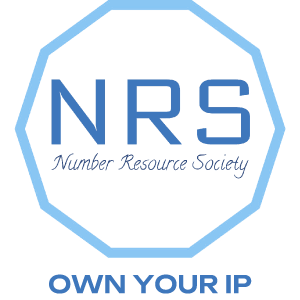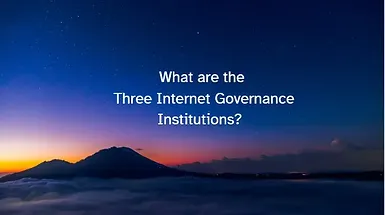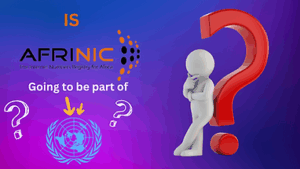In the past, Internet governance barely existed. There was an emphasis on the right of the online world to self-regulate: with particular focus on free speech, and minimal interference.
However, as the Internet has become a bigger part of our lives, governments worldwide have introduced legislation and regulations. The Internet is no longer seen as radically different from society and the economy. In the same vein that economies and societies are governed, the Internet has been regulated by policies and by-laws.
Governing institutions have been formed to manage the Internet. Being a huge space, the Internet requires coordination among different organizations so that it functions coherently and reliably.
Three important organizations all have significant roles in determining how the Internet is managed: ISOC, ITU, and IGF. Let’s explore what each organization does in shaping the rules and guidelines that govern the Internet.
Internet Society (ISOC)
The Internet Society (ISOC) is a non-profit group founded in 1992 whose main goal is to provide Internet access to those in need. ISOC strives “to promote the open development, growth, and use of the Internet for the benefit of everyone in the world.” They actively strive for an Internet that is open, globally connected, secure, and trustworthy.
ISOC contributes to the Internet in several ways:
- Building Communities: ISOC helps create communities that make the Internet more useful. Each year, they organize a gathering that recognizes such communities.
- Advancing Technology: ISO pushes forward the development of Internet infrastructure, technologies, and open standards.
- Advocating for Policies: ISOC supports policies that keep the Internet open and accessible.
ISOC also plays a role in various projects, including the Public Interest Registry (PIR), the Internet Hall of Fame, and supporting the Internet Engineering Task Force (IETF). These efforts align with the United Nations’ Internet Governance Initiative, which aims to shape the future of the Internet in a globally connected digital world.
International Telecommunication Union (ITU)
The International Telecommunication Union (ITU) is an agency of the United Nations that started in 1865. ITU has a crucial role in managing global information and communication technologies (ICTs) by:
- Allocating Global Resources: As a communication agency, ITU oversees the global radio spectrum and satellite orbits.
- Setting Technical Standards: ITU creates technical standards to make sure different networks and technologies work together smoothly.
- Expanding Access: ITU works to improve access to ICTs in underserved communities around the world.
The Role of ITU in Internet Governance
In the past, ITU standards brought broadband access to millions of users globally.
ITU helps facilitate international cooperation in managing the Internet and ensuring fair allocation of domain names and addresses. They also help ITU Member States in coordinating the resolution of issues related to country code top-level domains (ccTLDs).
ITU also deals with issues related to IP-based networks and serves as a platform for policy discussions. They work with governments to provide a legal framework for global information networks’ interoperability and accessibility while protecting public interests.
Furthermore, ITU plays a role in promoting multilingual domain names. ITU’s mission is to connect people across the globe, safeguarding and supporting their right to effective communication. They are dedicated to ensuring that global communication networks run smoothly with the goal of making modern technologies accessible to everyone.
Internet Governance Forum (IGF)
The Internet Governance Forum (IGF) is a worldwide platform that brings together people from various backgrounds. These stakeholders include governments, civil society, and the private sector. Through the IGF, these stakeholders can discuss public policy issues related to Internet management. It was created as a significant result of the United Nations World Summit on the Information Society (WSIS).
Internet Governance Forum acts as a space where different stakeholders can have discussions about Internet management topics. These topics range from technical matters to public policy issues linked to the Internet.
Participating in the IGF is important for individuals and organizations interested in shaping the future of the Internet. It’s a place where diverse voices can discuss the challenges and opportunities that evolve with the Internet’s growth.
How You Can Get Involved
We can help create a better future for the Internet by getting involved with organizations like ITU, ISCO, and IGF. We have the power to contribute to the development, openness, and accessibility of the Internet on a global scale.
You can become a member of and get involved with and assist organizations like ISOC (Internet Society), ITU (International Telecommunication Union), and IGF (Internet Governance Forum) in their important work on Internet management issues.
Alternatively, you can join non-profits like the Number Resource Society (NRS). NRS actively participates in current discussions surrounding Internet governance. Our main goal is to champion the rights of businesses and institutions when it comes to the ownership of their digital assets.
Join us today in our fight to create an Internet that is free and accessible to all.




